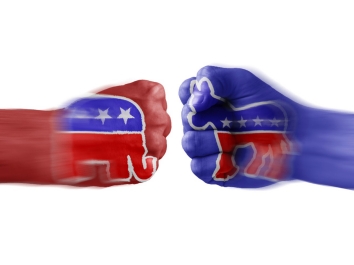Selling advertising and the need to be more provocative is why much of the content people see in their feeds is hostile, according to a new paper using a survey of 1,800 Americans during the 2020 election.

The authors define political cynicism as distrust of political motivations beyond healthy skepticism. Believing that politicians are corrupt and self-serving used to be only about their opponents but now 'anyone on our side is better than everyone on their side' is the norm even though few actually believe it. This may cause citizens to withdraw from politics, and not many vote now.
Confidence in government is at its lowest since the Carter presidency, and perceptions that self-interest and corruption are guiding government action have bred cynicism across the political spectrum. The authors believe some of that is due to social media influence. There is no question social media can be manipulated. PNAS published a paper using Facebook data where the company intentionally manipulated newsfeeds of users and no one in the publishing company had an issue with it until sites like ours led public outcry about the ethics of it.(1)
In California, we just had a primary and prior to that we were inundated with 'attack' ads on Senate candidate Steve Garvey, noting he is 'too conservative for California.' Anyone with any political savvy knows that was paid for by Democrats. In California, thanks to law changes put in force by Democrats, two Democrats can run against each other and none of them want that for an open Senate seat. So it was obvious 'too conservative' was hoping to mobilize the few Republicans left to vote for him and have him outperform other Democrats. Everyone knows it is happening.(2)
Surveys are always tricky. That is my polite way of saying that beyond meaningless information - 'do you enjoy the taste of cilantro?' - they have little direct value. They do have indirect value, if you can really measure political cynicism, which the authors hoped to do. The results found anger in some and anxiety in more. It is hard not to be anxious when campaigns are saying how robust the economy is while people are reduced to buying cheap toilet paper.
Yet elections are often won by negative emotions. If you are convinced Trump will hand out nuclear bombs to Republicans or that Biden is not in charge of his administration so we'll get four more years of economic malaise you are more likely to vote. Unless you are so despondent you think it doesn't matter.
A recent poll found that 70 percent of people think elections make no difference, and those results are mirrored in other countries. Social media didn't cause that problem, they are corporate media just like the New York Times so they solicit the audience their advertisers want, but social media may be causing it to accelerate.
NOTES:
(1) It is impossible for Republicans in California to trust Democrats on illegal immigration when they know that illegal immigrants are counted toward Congressional apportionment - and Democrats would lose a seat in Congress if it were fixed.
(2) It worked. Garvey will appear on the ballot in the fall where he will be defeated easily by Rep. Adam Schiff - who won't have to face either of the two female Democrats he'd otherwise have risked running against. People may distrust his methods but history is written by the winners.




Comments